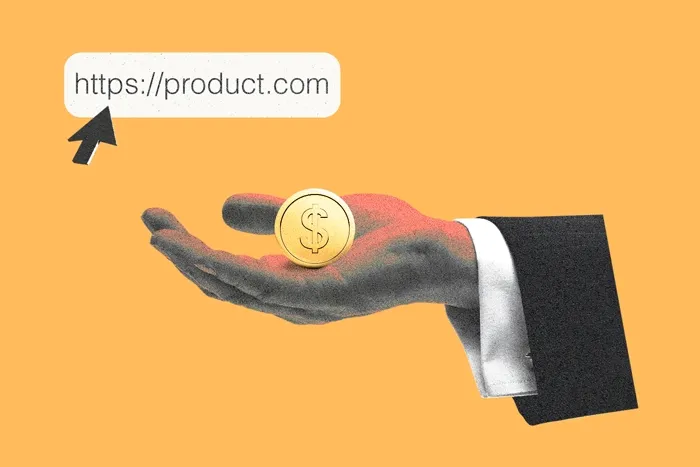All is not sweet with Honey.
Earlier this month, the browser extension that claims to source “the internet’s best coupons” and its parent company, PayPal, were sued by creators in multiple class-action lawsuits for allegedly taking improper credit for driving sales by collecting commissions using affiliate links. In a separate lawsuit, Capital One, which operates a similar browser extension called Capital One Shopping, was accused of doing the same thing.
At the center of the claims is last-click attribution, a technical mechanism determining which creator or company gets credit for online sales. In the lawsuits, creators claim that the browser extensions pocketed cash the creators should have earned by swapping creator affiliate links with their own.
Honey and Capital One have both disputed the allegations, and in an emailed statement, PayPal spokesperson Kate Licht described last-click attribution as an “industry practice” that is “widely used across major brands.”
“It feels slimy”
The controversy began in mid-December, when YouTuber MegaLag posted a video digging into Honey’s business practices, which he said include swapping cookies to claim last-click attribution as well as allowing brands to dictate which coupons and deals Honey users get access to.
Honey, which has around 18 million users on Google’s Chrome browser, has partnered with countless creators over the years to promote its browser extension, and in the video, MegaLag shows a list of more than 1,000 different YouTube creators, including big names like MrBeast and Matt Stonie, who he says have promoted the tool.
Several creators have since publicly responded. Marques Brownlee, who says he had three videos sponsored by Honey in 2020 and was one of the creators featured in the MegaLag video, has since posted a response video in which he says he “never would have worked with Honey” had he known about their business practices. He has since edited out all Honey sponsorships from his videos, he says in his response.
Zach Russell, a YouTuber who is also the co-founder and head of talent at influencer agency Mana Talent Group, told us that taking credit for last-click attribution stands to have widespread effects on creators, whose ability to drive sales can serve as a crucial data point when striking up deals.
“Content creators are judged essentially off of their ability to convert,” Russell said. “You look at some of these behemoths during that time that are maybe potentially having trouble converting directly after they worked with someone like Honey, and it’s just this giant, ‘What if?’”
Get marketing news you'll actually want to read
Marketing Brew informs marketing pros of the latest on brand strategy, social media, and ad tech via our weekday newsletter, virtual events, marketing conferences, and digital guides.
While creators may feel undermined, it’s not clear whether swapping out a cookie is unlawful, or just a better ad-tech mousetrap, Robert Freund, a lawyer that works with advertisers and e-commerce brands and is not involved in the cases, told Marketing Brew.
“It feels slimy…It feels like Honey is using basically a software solution that most affiliates can’t compete with,” Freund told us.
“It might be unfair, but is it unlawfully unfair?” he said. “And if it is, how do you make out a claim to try and hold PayPal liable?”
Licht, the PayPal spokesperson, said that the company “dispute[s] the allegations in the lawsuits, and will defend against them vigorously.”
“Honey is free to use and provides millions of shoppers with additional savings on their purchases whenever possible,” she wrote in an email. “Honey helps merchants reduce cart abandonment and comparison shopping while increasing sales conversion. Honey follows industry rules and practices, including last-click attribution, which is widely used across major brands.”
In an email, Capital One spokesperson Kate Burgess said the company “disagree[s] with the premise of the complaint and look[s] forward to defending ourselves in court.”
Last (click) laugh
While ad platforms like Meta and Google allow advertisers to rely on other ways to credit the success of a purchase, last-click attribution is still widely used, though there are few standards industry-wide.
The IAB Tech Lab, which creates standards for the advertising industry, does not have a specific framework or standard for last-click attribution, the group’s CEO, Anthony Katsur, told Marketing Brew.
“Standardizing this is tough, since everyone’s attribution approach is in the eye of the beholder,” Katsur said in an email. “The industry has never prioritized this within our working groups.”
Russell said that if the lawsuits against Honey and Capital One are unsuccessful, it could serve as an opportunity for agencies to step up and protect creators from last-click tactics that companies are “legally capable of doing.”
Regardless of what happens with the lawsuits, though, he said Honey’s YouTube sponsorship days are likely over—and he predicted that the “vast majority” of creators will likely refrain from working with the company moving forward. YouTuber Hank Green said in a response video that he’s “glad that everyone is now aware that Honey has a corrupt business model.”
“There’s a possibility that [Honey] didn’t do anything legally wrong,” Russell says in the video. “But they did do something that was, in general, bad business.”
